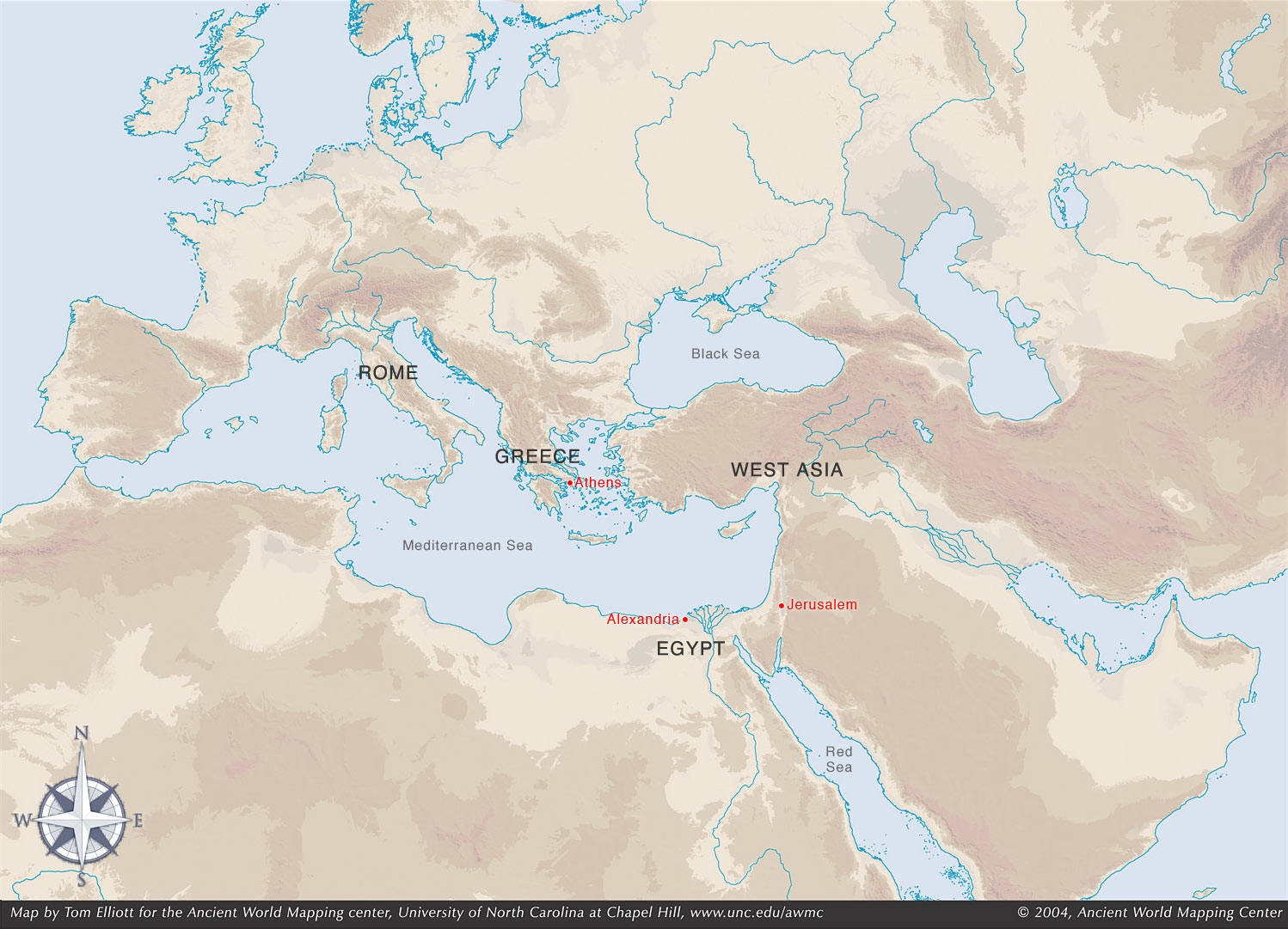Basic Chronology of the Ancient World - Spring Semester
(authors/works studied this semester in bold)
Also see the following complementary timeline:
http://www.metmuseum.org/toah/world-regions/#/04/World-Map
| Date | Rome | Greece | Egypt and West Asia |
|---|---|---|---|
| 1069-664 BCE | Third Intermediate Period – Period of political disunity in Egypt | ||
| 753 | Traditional date of founding of Rome by Romulus and Remus | ||
| 753-509 | Traditional period of kings (described by Livy, Rise of [Rome], bk I) | ||
| 747-656 | Dynasty 25 – Nubian kings conquer and unify Egypt | ||
| 664-332 | Late Period | ||
| 664-539 | Saite Dynasty (Dynasty 26); Egypt is unified and a major power in the Near East | ||
| 664-610 | Reign of Psammetichus I; Greek and Carian mercenaries settle in Egypt | ||
| 570-526 | Reign of Amasis | ||
| 509-27 | Republic | ||
| c. 450-430 | Herodotus visits Egypt | ||
| 404-343 | Dynasties 28-30: Persians expelled from Egypt; last period of indigenous rule |
4th-Century BCE, Alexandrian Empire
| Date | Rome | Greece | Egypt and West Asia |
|---|---|---|---|
| 399 | Socrates put to death | ||
| c. 380 | Plato, Republic | ||
| c. 350 | Aristotle, Nicomachean Ethics | ||
| 343 | Persian Re-conquest of Egypt | ||
| c. 340 | Aristotle, Politics | ||
| 336-323 | Alexander the Great rules Macedonia (Alexandrian and Persian Empires) | ||
| 334-330 | Alexander conquers the Persian Empire and founds Alexandria (Egypt) (Ptolemaic Egypt) (Golvin's Alexandria) (Golvin's Canopic Street) | ||
| 323 | Alexander dies in Babylon |
323-30 BCE Hellenistic Era
| Date | Rome | Greece | Egypt and West Asia |
|---|---|---|---|
| 323-275 | Succession struggles among Alexander's "Successors" (Diadochoi). Results in Greek Kingdoms of Antigonids in Macedonia and mainland Greece, Attalids in west Asia, Seleucids in Asia Minor, Syria, Palestine, Iran and Iraq, and Ptolemies in Egypt, Libya and the Aegean The Hellenistic World, 250 BCE The Hellenistic World, 170 BCE |
||
| 306-168 | Antigonid Dynasty in Macedonia and Mainland Greece | ||
| 305-30 | Ptolemaic Dynasty in Egypt, Libya and the Aegean | ||
| 305-63 | Seleucid Dynasty in Syria, Palestine, Iran, and Iraq | ||
| c. 280s | The Ptolemies establish Library in Alexandria | ||
| 281-133 | Attalid Dynasty in Pergamon and western Asia Minor | ||
| 270s | Theocritus, Idylls | ||
| 264-201 | First and Second Punic Wars: Rome defeats Carthage and acquires Sicily as the first Roman province. The First Punic War, 264-241 BE The Second Punic War and After, 218-168 BCE |
||
| 166 | Terence, The Girl from Andros | ||
| 164-141 | Revolt of Jews in Jerusalem (Map of Jerusalem in Maccabean period) against the Seleucids. Daniel composed in the early part of this period. | ||
| 2nd c. | Pergamon altar constructed [Pergamon] | ||
| 167-150 | Polybius, a Greek prisoner in Rome, composes his Histories. Roman expansion in the later 2nd century BCE |
||
| 133 | Romans control Greece, Spain, western Asia Minor, northern Africa | ||
| 63 | Romans conquer Seleucids; Pompey marches on Jerusalem | ||
| 60 | First Triumvirate (Caesar, Pompey and Crassus) | ||
| c. 60-55 | Lucretius, On the Nature of Things (De Rerum Natura) | ||
| 49-45 | Civil war between Caesar and Pompey and their followers | ||
| 44-43 | Cicero writes the On Duties and†delivers 14 Philippics against Mark Antony | ||
| 43 | Second Triumvirate (Octavian, Antony and Lepidus); Cicero put to death on Antony's orders | ||
| 31 | Octavian defeats Antony and Cleopatra, Battle of Actium | ||
| 30 | Egypt becomes a Roman province |
Roman Empire: 1st - 2nd centuries, CE
| Date | Rome | Greece | Egypt and West Asia |
|---|---|---|---|
| 27 | Octavian takes the name Augustus and becomes first Roman emperor | ||
| 30-19 | Virgil, Aeneid | ||
| 9 | Ara Pacis dedicated | ||
| c. 2 BCE - 8 CE | Ovid, Metamorphoses | ||
| 14 | Augustus, Res Gestae (map of the Roman Empire at the death of Augustus) | ||
| c. 30 | Jesus crucified (possibly as late as 33) [Jerusalem] | ||
| 38 | Ethnic conflict between Greeks and Jews in Alexandria. Philo leads an embassy of Alexandrian Jewish leaders to Rome | ||
| 49 | Seneca made tutor of future emperor Nero | ||
| 54-55 | Paul, 1 Corinthians [Corinth] | ||
| 57 | Paul, Letter to the Romans | ||
| 66-73 | Jewish revolt against Rome ("Jewish war") [Jerusalem] | ||
| c. 68-69 | Gospel of Mark | ||
| 70 | Destruction of Jerusalem temple by Romans | ||
| c. 79 | Pliny the Elder, Natural History (with reference to the Laocoˆn) | ||
| 203 | Martyrdom of St. Perpetua | ||
| Late 2nd century CE | Apuleius, The Golden Ass |
